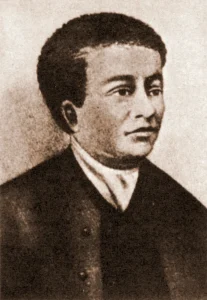About Benjamin Banneker
Early Life and Education:
- Born to free parents – his father was a former slave and his mother was the daughter of a mixed-race couple
- Grew up on a 100-acre tobacco farm owned by his family
- Received some formal education in a one-room Quaker schoolhouse
- Largely self-educated through voracious reading of borrowed books
Notable Achievements:
- Wooden Clock: Around age 20, Banneker built a wooden clock that kept precise time, one of the first of its kind in America.
- Astronomy: Self-taught in astronomy, he accurately predicted a solar eclipse in 1789.
- Almanacs: Published a series of almanacs from 1792 to 1797, containing his astronomical calculations, literature, and medical and tidal information.
- Surveying Washington D.C.: In 1791, assisted Andrew Ellicott in surveying the territory for the new capital city of Washington D.C.
- Correspondence with Thomas Jefferson: In 1791, wrote a letter to then-Secretary of State Thomas Jefferson, challenging him on the issue of slavery and racial equality. He included a handwritten copy of his almanac with the letter.
Advocacy:
- Opposed slavery and advocated for civil rights
- His accomplishments were used by abolitionists as evidence of the intellectual capabilities of African Americans
Legacy:
- Became a folk hero after his death, with many accounts of his life being exaggerated
- Many parks, schools, and streets have been named in his honor
- His life story exemplifies the paradox of early American ideals of freedom and opportunity existing alongside racial inequality
Personal Life:
- Never married and had no children
- Lived his entire life on his family farm near Baltimore
Benjamin Banneker’s life and work stand as a testament to intellectual achievement in the face of racial prejudice. His contributions to science, mathematics, and civil rights make him a significant figure in early American history and African-American intellectual tradition.
Address List
- REGISTERED ADDRESS:
16 South End, Croydon, CR0 1DN - LOCATIONS: The Exchange, Somerset House, Strand, London, WC2R 0RN
- +44 07986 745486
- info@blackheroesfoundation.org
- Registered Charity: 1169616
- Privacy Policy
PLEASE DONATE
We need your support, please donate where you can.
Help us to make a difference. To be that bright light in the corner of a dark room, giving diversity a Voice.
